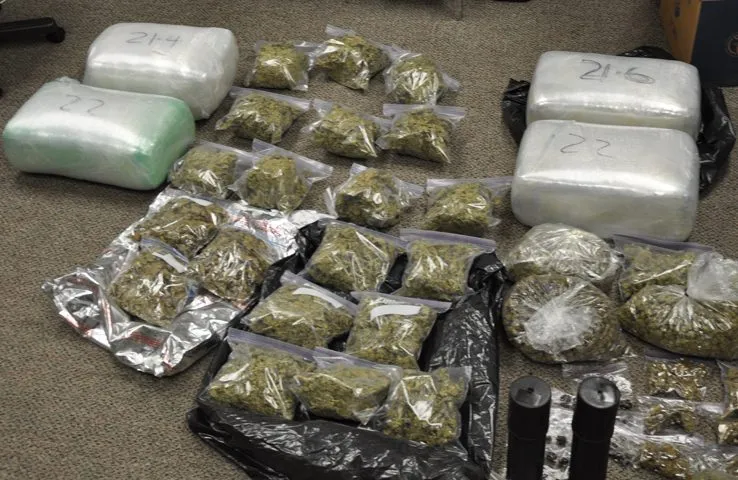Drug trafficking has become a significant problem in Nigeria, with the criminal industry having an even more substantial impact on this African country than on its powerful neighbors.
In recent years, reports have indicated that Nigeria is now the epicenter of drug trafficking and illicit activities in West Africa.
From marijuana to cocaine and other drugs, various illegal substances are smuggled across borders into Nigerian cities and towns.
Unfortunately, such acts carry tremendous risks for them and those within their community; many people suffer from serious health complications caused by drug abuse, while others face prosecution should they be caught engaging in such activities.
An Overview Of Drug Trafficking In Nigeria
Drug trafficking in Nigeria remains a significant concern. Though not as widely reported as other issues, it substantially threatens Nigerian society and the economy.
Read Also: General Overseer, theology student arrested over planned export of drugs to Dubai
Cocaine, heroin, and cannabis are smuggled into Nigeria daily through different types of drug trafficking such as neighboring countries or across international borders, maritime drug trafficking, and synthetic and air drug trafficking.
Like Soldiers from Nigeria who had served in Burma and India returned with cannabis sativa seeds. They continued to experiment with its cultivation and learned that the plant thrives in some areas of Nigeria, which prompted an increase in the plant’s cultivation.
Illegal transport and sale of narcotics also occur within the country, leading to a rise in drug abuse among its citizens.
Drug trafficking is a highly organized criminal enterprise, and stopping it requires a coordinated effort between law enforcement agencies.
It is time to take concrete steps toward tackling this menace and protecting our communities from its destructive effects.
How Does Drug Trafficking Impact Nigeria’s Economy And Society?
Drug trafficking has numerous effects on Nigeria’s economy and society. The illegal drug trade generates tremendous revenue that is never taxed.
It means the government loses out on much-needed income, which could fund critical public services. Drug trafficking also destroys people’s lives, families, and communities.
Pix:
Addicts who find themselves in this vicious cycle commit crimes to finance their habit and become a burden on the criminal justice system. The widespread availability of drugs fuels corruption and organized crime, resulting in more violence and instability.
Lastly, the international reputation of Nigeria is damaged, and the country may be subject to trade restrictions and other penalties. The Nigerian government must take decisive action to combat drug trafficking and its severe consequences for their economy and society.
The Causes Of Drug Trafficking In Nigeria
The country’s porous borders, corruption, poverty, unemployment, and weak legal system are some of the root causes of drug trafficking in Nigeria.
These factors have created an enabling environment for drug traffickers who prey on vulnerable individuals, especially the youth, to traffic drugs.
The effects of drug trafficking are catastrophic and can range from the spread of deadly diseases such as HIV/AIDS to economic losses to victims and their families and even death.
Therefore, all stakeholders must concerted effort to address the root causes of drug trafficking in Nigeria to prevent its spread and mitigate its effects on individuals and society.
For Further Details, Check Out Nigeria Crime.
Strategies To Combat The Illegal Trade Of Drugs In Nigeria
With the situation becoming increasingly dire, it is vitally important to implement effective strategies to combat the illegal trade of drugs in Nigeria.
One promising approach is to reduce the demand for drugs through education and public awareness campaigns supported by effective drug treatment and rehabilitation.
Additionally, law enforcement agencies should be given the resources and support they need to disrupt drug trafficking networks and bring punishment for Drug Trafficking in Nigeria.
By taking a multifaceted approach to this complex issue, we can work to create a safer, healthier future for all Nigerians.
Final Take
Drug trafficking has become a significant concern in Nigeria, and authorities have been trying to end this growing problem.
The country is known to be a significant transit point for illegal drugs in Africa, which has contributed significantly to the rise in social vices and insecurity.
Nigerian law enforcement agencies have taken several measures to curb this menace, including the interception of narcotics at borders and securing the country’s coastline.
However, must be done to address the root causes of drug trafficking, such as poverty, high unemployment rates, and government corruption.
Citizens can also play a role by being more vigilant and reporting suspicious activities to authorities. We can make a difference and ensure a safer and more prosperous Nigeria by working together.



